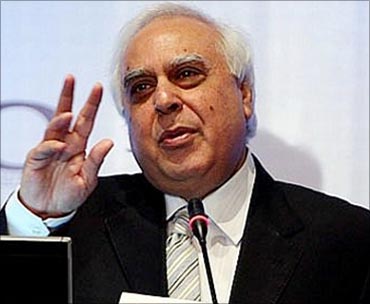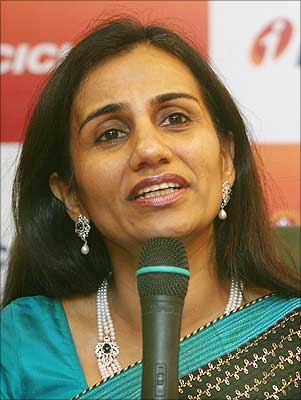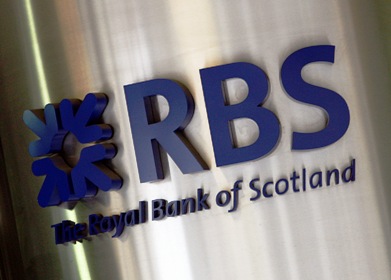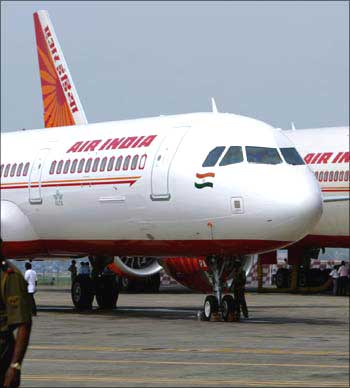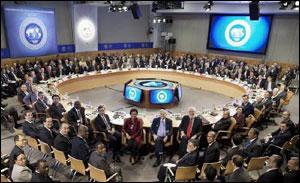Research In Motion Ltd. unveiled new, versatile BlackBerrys after excruciating delays allowed Apple, Samsung and others to build commanding leads in an industry that is redefining society. But the first phone won't come out in the United States until March, and one with a physical keyboard will take at least a month longer.
The stock fell 12 percent after Wednesday's kickoff, despite mostly positive reviews about the new BlackBerry 10 operating system. There's concern the phone isn't coming out sooner, and there's worry BlackBerry 10's advances won't be enough to turn the company around.
In a move underscoring the stakes riding on its make-or-break product lineup, RIM used the occasion to announce that it is changing the company's name to BlackBerry. It's a pioneering brand that lost its cachet not long after Apple's 2007 release of the iPhone, which reset expectations for what a smartphone should do.
Pioneered in 1999, BlackBerry became a game-changing breakthrough in personal connectedness. It changed the culture by allowing on-the-go business people to access wireless email. President Barack Obama couldn't bear to part with his BlackBerry. Oprah Winfrey declared it one of her "favorite things.'' It was so addictive at times that it was nicknamed "the CrackBerry.''
As the BlackBerry began to cross over to consumers, rivals came out with a new generation of phones that could do more than just email and messaging, starting with the iPhone and followed by devices running Google's Android system. Suddenly, the BlackBerry looked ancient.
RIM promised a new system to catch up, using technology it got through its 2010 purchase of QNX Software Systems. But it has taken more than two years to unveil new phones that are redesigned for the new multimedia, Internet browsing and apps experience that customers are now demanding.
CEO Thorsten Heins, who one year ago replaced longtime executives who had presided over BlackBerry's fall, formally unveiled the much-delayed smartphones and software Wednesday in New York. Simultaneous events were held in Toronto, London, Paris, Dubai, Johannesburg, New Delhi and Jakarta, Indonesia.
The first device in the new crop of revamped BlackBerrys will be the Z10 _ pronounced "zee-10'' in the U.S. and "zed-10'' elsewhere. As RIM previously disclosed, it will have only a touch-screen keyboard, like Apple Inc.'s trend-setting iPhone and most phones running Android, including Samsung Electronic Co.'s popular Galaxy line. Although the Z10 will go on sale Thursday in the U.K. and next Tuesday in Canada, it won't be available in the U.S. until March.
The Q10 will follow and will have a physical keyboard, a feature that has kept BlackBerry users loyal over the years because it makes typing easier. RIM said the Q10 will start going on sale on some global carriers in April, but it couldn't say when U.S. carriers will have it.
Heins said U.S. carriers need more time to test the devices. All the major U.S. carriers plan to sell the new BlackBerrys. Verizon Wireless said the Z10 will be available for $200 with a two-year service agreement, in line with what other major smartphones cost. In Canada, it will cost about $150 with a three-year contract.
Frank Boulben, RIM's chief marketing officer, said some of the delay in the U.S. stems from specific testing requirements imposed by the Federal Communications Commission. There was a similar delay when the iPhone first came out, though subsequent models were released more quickly after their announcements.
The U.S. has been one market in which RIM has been particularly hurting, even as the company is doing well in many places overseas. According to research firm IDC, shipments of BlackBerry phones plummeted from 46 percent of the U.S. market in 2008 to 2 percent in 2012. The iPhone and Android now dominate.
BGC Financial analyst Colin Gillis said the new phones' tardy arrival in the U.S. threatens to cause even more BlackBerry users to defect. By the time the Z10 goes on sale in the U.S., Gillis suspects many people will be waiting to see what Google plans to unveil in mid-May at an annual conference that usually includes new gadgets and an Android software update. Speculation of a new iPhone also may be building by then.
Wednesday's event flopped on Wall Street. RIM's stock fell $1.88 to $13.78. The stock has more than doubled from its nine-year low of $6.22 in September, but is still nearly 90 percent below its peak of $147 reached in 2008, when the iPhone was still a novelty trying to break into the mainstream.
Despite their limited availability until March, the new BlackBerrys will be hailed in a commercial Sunday during CBS's telecast of the Super Bowl. RIM declined to say how much it is paying, but some 30-second spots during the game have been sold for as much as $4 million. RIM said the spot is designed to signal to U.S. customers that the BlackBerry is back.
RIM also decided to make a touch-only version first, despite its strength with physical keyboards, in hopes of luring new customers.
"The idea that we are launching BlackBerry 10 just to upgrade the existing physical keyboard customer base is wrong,'' Boulben said in an interview. ``The new platform we are introducing will have much wider appeal on the market. It's for all the people looking for the next generation in smartphone experience.''
But RIM won't abandon physical keyboards. The Q10 will have a square screen and sport a 35-key physical keyboard with a back light, with language-specific arrangements such as QWERTY and AZERTY depending on the market. It's meant to cater to people who still prefer that over a touch screen.
The touch-screen keyboard itself promises such improvements as learning a user's writing style and suggesting words and phrases to complete, going beyond typo corrections offered by rivals.
The new BlackBerrys also are supposed to run faster and enable people to separate their professional and personal lives with a feature called Balance. They also promise to let people easily switch between multiple applications by swiping on the screen. The new BlackBerrys won't have a home button, which is fundamental to the iPhone.
"Gone are the days of going back and forth and in and out between applications,'' said Andrew MacLeod, RIM's managing director for Canada. ``It's cumbersome, it's inefficient and it's slow.''
The new software and BlackBerrys were supposed to be released a year ago, only to be delayed while Apple and Android device makers won more zealous converts to their products. In the meantime, Microsoft Corp. rolled out a new Windows operating system for smartphones, confronting RIM with another technology powerhouse to battle.
The delays in developing the new BlackBerrys helped wipe out $70 billion in shareholder wealth and 5,000 jobs.
"It is the most challenging year of my career,'' said Heins, whose anniversary leading the company occurred last week. ``It is also the most exhilarating and exciting one.''
Some analysts have questioned whether the company that helped create the smartphone market will survive, especially as its losses have mounted in the past year.
"We'll see if they can reclaim their glory,'' Gillis said. "My sense is that it will be a phone that everyone says good things about but not as many people buy.''
Ovum analyst Adam Leach said he believes the new system will appeal to existing BlackBerry users, but that won't be enough to undercut the popularity of the iPhone and Android devices. He predicted that BlackBerry ``will struggle to appeal to a wider audience, and in the long-term will become a niche player in the smartphone market.''
That said, RIM won't need a knockout. As smartphone sales grow overall, RIM can still succeed with the BlackBerry 10 without requiring iPhone and Android users to switch.
Regardless of BlackBerry 10's advances, though, the new system will face a key shortcoming: It won't have as many apps written by outside companies and individuals as the iPhone and Android.
RIM said it plans to launch BlackBerry 10 with more than 70,000 apps, and with 100,000 apps by the time it comes to the U.S. But some of those were developed for RIM's PlayBook tablet, first released in 2011, and weren't necessarily adapted to run on the BlackBerry 10. In addition, popular services such as Instagram and Netflix won't have apps on BlackBerry 10.
Source: http://www.indianexpress.com/news/new-blackberry-wont-be-released-in-us-until-march/1067214/0








